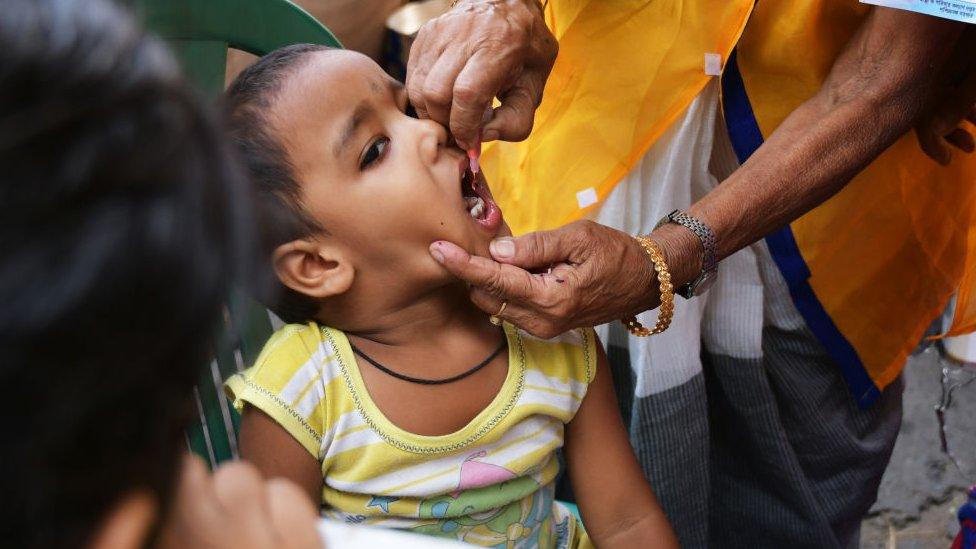How some Indian hospitals are cutting cancer drug costs
- Published
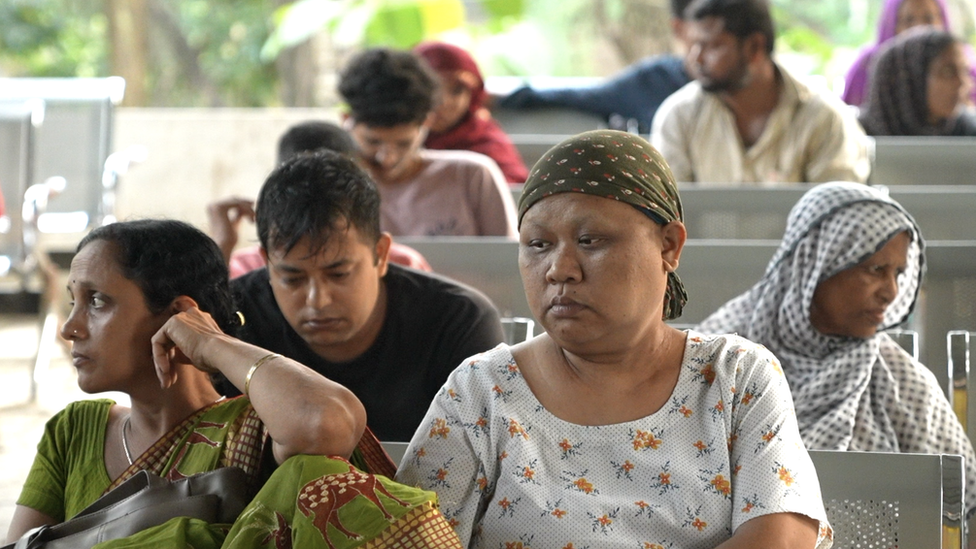
People waiting at Cachar Cancer Centre in Assam, India
Scores of patients quietly fill a modest tin shed which serves as a waiting area at a cancer hospital in Silchar, in north-eastern India.
Over the last few months, Cachar Cancer Centre in the state of Assam has seen an unusually high number of patients from nearby towns and villages.
The reason: a quiet revolution that is making cancer drugs more affordable.
The hospital is part of the National Cancer Grid, a group of treatment centres that have clubbed together to bulk buy drugs and bring down costs by more than 85%.
It is a modest start but, literally, a lifesaver for some of the country's poorest people.
Expensive, protracted treatments often put families under immense financial strain or are simply out of reach.
For example, breast cancer treatments can extend for over 10 cycles and cost more than $6,000 (£4,719). In a country where the average monthly salary is less than $700, that is beyond many household budgets.
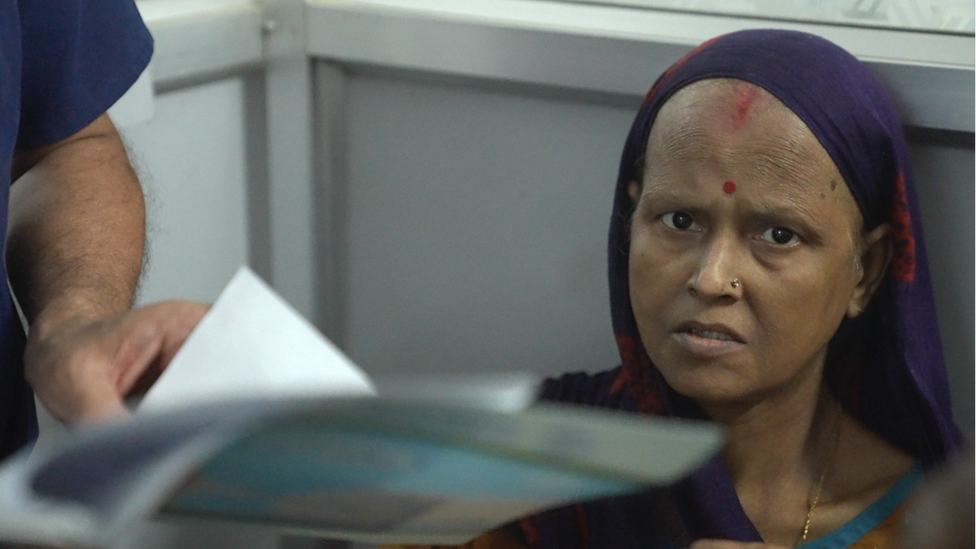
Baby Nandi has been receiving chemotherapy to treat breast cancer
Baby Nandi, 58, is waiting for her next chemotherapy session at the Cachar hospital clinic. Previously, she had to travel 2,000km (1,242 miles) for breast cancer treatment. The drugs alone cost $650 for one treatment cycle. She needed six cycles. Along with the travel and accommodation costs, her family's finances were pushed to the brink.
Thanks to the new initiative, those drugs are now available in her home city, Silchar, at a third of the cost.
Baby's husband Narayan Nandi said: "We don't have so much money at a go. I had to sell land and borrow from my relatives to take her to Chennai. At least now we can afford her full treatment and be home."
Nearly two million cancer cases are reported a year in India, but consultancy firm EY says that the actual figure could be up to three times as high.
Most people in India have to pay for healthcare themselves. Even for those with insurance or on government schemes, cancer care costs are often not fully covered.
Amal Chandra, the owner of a small shop in rural Assam, knows the problem well. Last year his wife's government health card, which covered $1,800 of health expenses, expired midway through her breast cancer treatment. "I had to borrow $250 to pay for her remaining chemotherapy injections," he told the BBC.
Amal and his wife are now back at the hospital as her cancer has returned but at least now the whole cost of her treatment is covered after the prices of drugs was brought down.
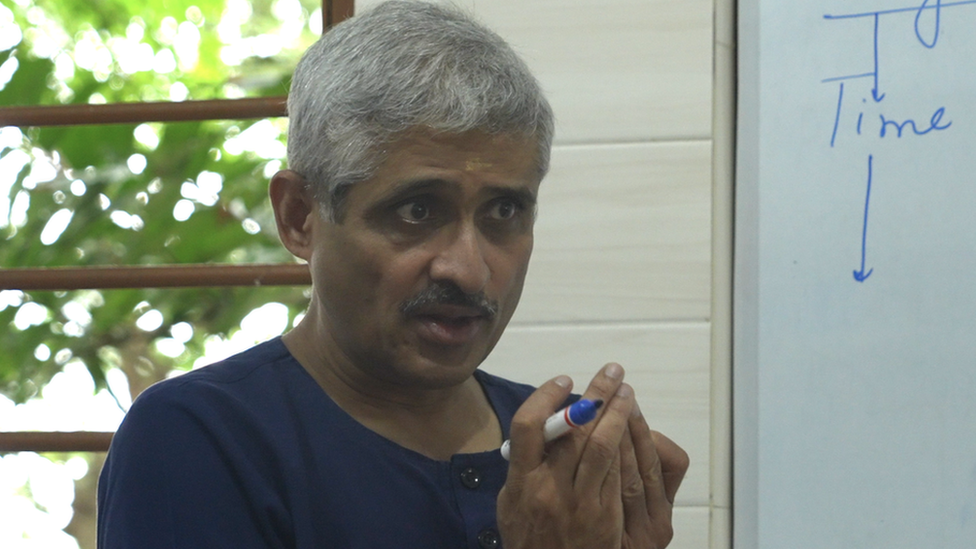
Oncologist Dr Ravi Kannan leads the Cachar Cancer Hospital's operations
A major issue is that most of India's cancer patients live in towns and rural areas, while the bulk of healthcare resources are in larger cities. This means that patients, like Mrs Nandi, and their families face the added burden of having to travel long distances to access treatment.
Healthcare experts say that getting cancer drugs to these parts of the country is one of the healthcare system's biggest problems. Cachar Cancer Hospital, the only facility of its kind in India's North-eastern hills, is trying to meet that challenge.
It treats 5,000 new patients a year and manages the ongoing treatment of another 25,000 people, who are mainly low-paid workers unable to afford the cost of cancer treatment and travel.
The intense pressure this puts on the not-for-profit organisation's funding means it faces a budget deficit of more than $20,000 a month.
Oncologist Dr Ravi Kannan, who leads the hospital's operations, told the BBC that the initiative to cut cancer drug prices has helped him to buy quality medicines and treat more patients for free.
It has also helped hospitals in smaller towns avoid another serious problem - running out of cancer drugs. Previously, drug supplies outside large urban centres were erratic due to the low numbers of patients and limited funds.
"Now smaller hospitals don't have to get into the negotiation table at all. The price is already decided and comes with a commitment to supply to all hospitals at par," Dr Kannan said.
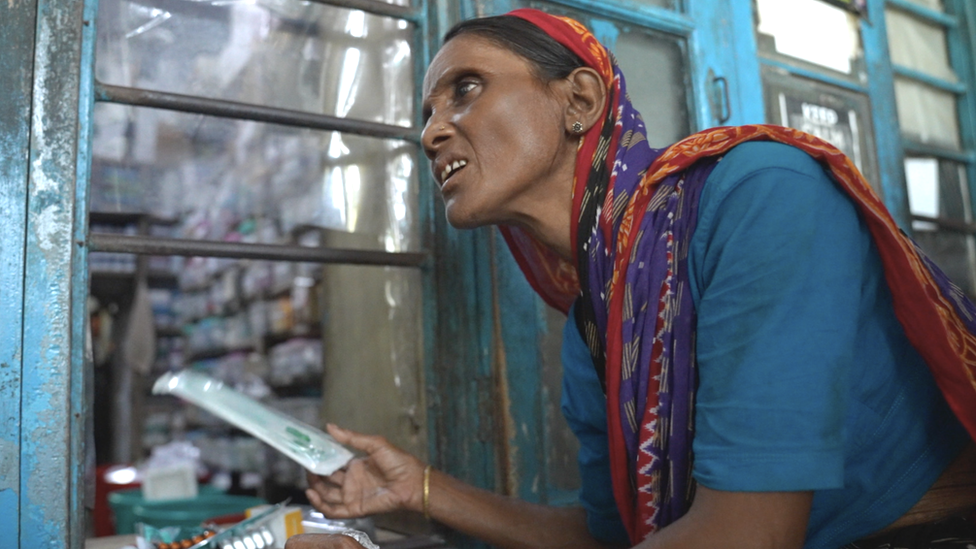
A woman collects a prescription
The initiative to bulk-buy drugs is led by the country's largest cancer centre, Tata Memorial Hospital (TMH) in Mumbai. The initial list had 40 common off-patent generic drugs, covering 80% of their pharmacy costs, saving the group $170m.
The success of the scheme has attracted interest from hospitals and state governments across the country.
The next round will expand to over 100 drugs, while broader cancer care purchases like supplies, diagnostics and equipment are also being considered. However, more expensive patented treatments are currently not part of the plan.
"I think what pharmaceutical companies need to understand is in a market like India, unless you bring costs down, you're not going to get the volumes and it's a chicken and the egg phenomenon," according to Dr C S Pramesh, Director of TMH and the Convenor of National Cancer Grid.
Dr Pramesh also says that with around 70% of global cancer deaths projected to be in lower and middle income countries, like India, initiatives similar to the National Cancer Grid could be key to helping patients around the world.
Related topics
- Published3 January 2024
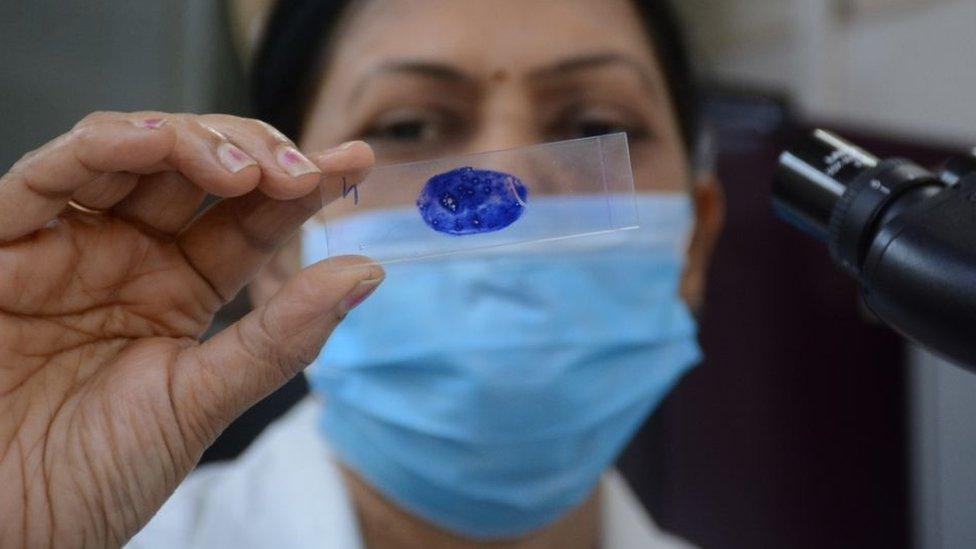
- Published21 December 2023
